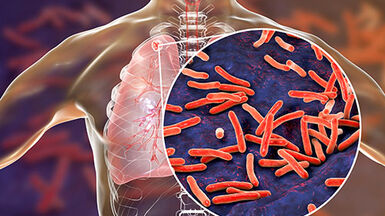High-level antimicrobial resistance meeting in Brussels
In the context of the antimicrobial resistance (AMR) conference of the Belgian EU presidency, with ECDC as one of the organisers, the Director participated in the high-level meeting ‘An EU Health Emergency’ in Brussels. The meeting was organised by Sciensano and the Belgian Federal Public Service Health.
The ECDC Director was invited to the panel discussion on “The EU AMR targets: How to ensure efficient implementation?”, moderated by Dominique Monnet.
Panellists, which include Roser Domenech Amado, Director of One Health in DG SANTE, Josep Figueras, Director of the European Observatory on Health Systems and Policies and Danilo Lo Fo Wong, Regional Adviser/Control of AMR of the WHO, discussed streamlining and coordinating the use of EU AMR targets in ongoing initiatives.
The EU targets are to reduce antimicrobial use by 2030, including a 20% reduction in total human consumption of antibiotics and a 50% reduction in overall EU sales of antimicrobials used for farm animals and aquaculture. These targets were adopted by the Council in June last year.
ECDC was able to rapidly adapt two if its surveillance networks – EARS-Net and ESAC-Net – to monitor and report progress towards the targets for antimicrobial consumption and AMR. This will continue this November and until 2030. However, because of the time needed for data collection, reporting to ECDC and further analysis, reporting is only done a little less than a year after the data are produced. The question is whether the turnover of the reporting of data, in collaboration with Member States can be speeded up.
To this aim, ECDC has engaged in two pilot projects on electronic surveillance, which are performed in close connection with the ECDC surveillance networks HAI-Net and EARS-Net. The first is a pilot project for the European Health Data Space (EHDS) to test with colleagues from Belgium, Croatia and Finland, the feasibility of electronic surveillance of AMR.
The second is the SURveillance from Electronic Health Data (SUREHD) project currently ongoing in 19 EU/EEA countries, with an additional 7 observer Member States, with a focus on surveillance of healthcare-associated bloodstream infections, including AMR profiles.
The results of these projects are expected for the end of this year or early 2025. This should also contribute to improving the turn-over of data pertaining to human health for ECDC’s contribution to the reporting of AMR data for the inter-EU agency reports in a One Health perspective.
Background
During the Swedish presidency of the Council of the European Union in 2023, recommendations were made regarding the European Union's AMR targets. This marked a significant milestone in the ongoing efforts of the EU to combat the growing threat of antimicrobial resistance.
The recommendations outlined during this period play a pivotal role in shaping strategies and policies aimed at promoting responsible antimicrobial use and safeguarding public health across the EU member states.
Despite the recommendations, the implementation of these measures remains challenging across EU member states. Recognising this issue, the Belgian Presidency has taken proactive steps by publishing a policy paper outlining feasible political actions that can facilitate the implementation of these recommendations.
The policy paper, published by the European Observatory in collaboration with the Belgian Presidency, serves as a background paper for the discussion during the high-level AMR Conference. The policy paper proposes practical and actionable strategies that member states can adopt to strengthen their AMR policies and enhance collaboration in combating antimicrobial resistance.







